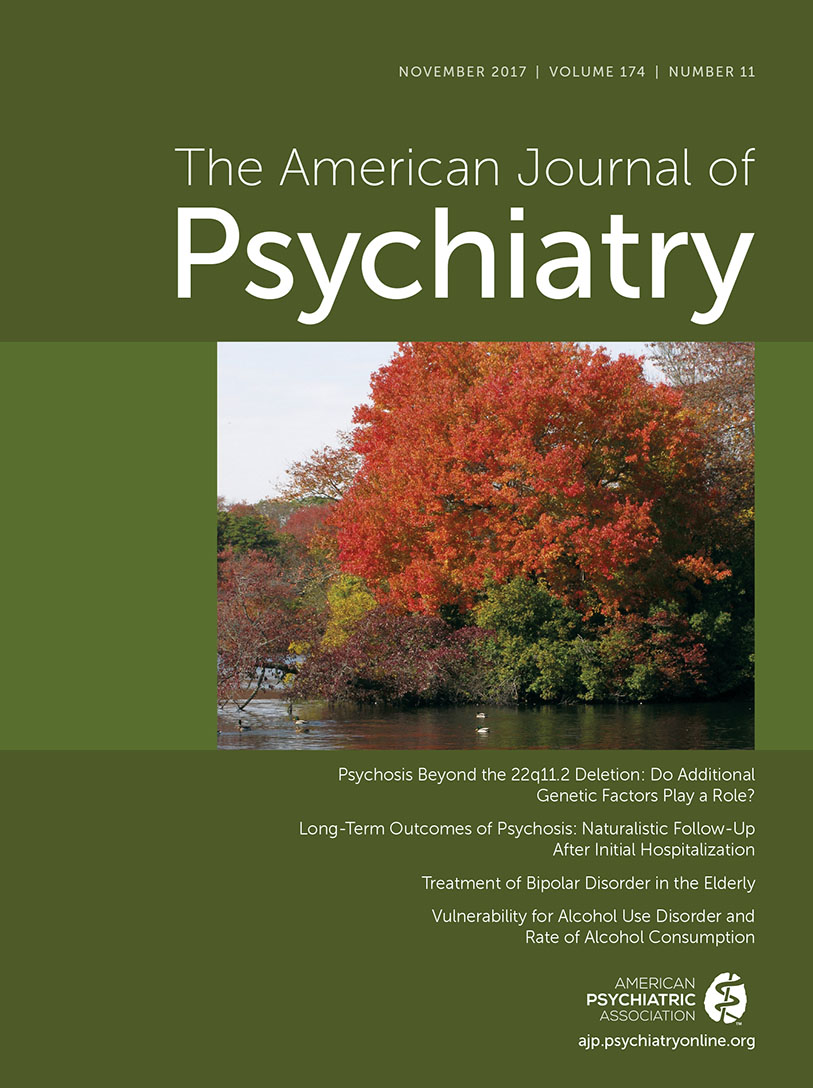Equivalence of Psychodynamic Therapy to Other Established Treatments: Limited Supporting Evidence and Clinical Relevance
To the Editor: Steinert and colleagues’ meta-analysis (1), published in the October 2017 issue of the Journal, concludes that psychodynamic therapy is equivalent to established treatments. However, several shortcomings hamper the validity of this claim. The meta-analysis includes various mental conditions, and the primary efficacy outcome, “target symptoms,” combines widely divergent measures of depression, social anxiety, posttraumatic stress disorder, suicidality, drug addiction, eating disorders, and even body mass index. This highly heterogeneous mix confounds the clinical relevance of the findings. Clinical significance is further stymied by lumping together diverse comparators, including medication. Even when the comparator is cognitive-behavioral therapy (CBT), its nature varies greatly among disorders.
Furthermore, defining equivalence margins is challenging, as presumably the clinically meaningful minimum difference varies depending on outcomes. Because equivalence testing is generally particularly prone to bias (2), this difference must be prespecified. The authors’ PROSPERO registration does not describe it, and equivalence is not mentioned. Because the article was funded by a professional psychoanalysis association, with arguably vested interests, accurate outcome prespecification is especially crucial. The authors preferentially use intention-to-treat data, which are unsuitable for equivalence claims because they may artificially dilute treatment differences (2). Finally, equivalence is clinically meaningful only if the control intervention has demonstrated efficacy for the condition studied. For example, psychodynamic therapy is claimed as effective as CBT for eating disorders or addiction, but in included landmark trials on anorexia (3) or cocaine dependence (4), neither intervention proved superior to treatment as usual on the predefined primary outcomes, violating the key assumption of assay sensitivity (2) and perhaps justifying their more accurate characterization as “equally ineffective.” Conversely, there is a risk of confounding of observed meaningful effects, such as in bulimia nervosa, where an equivalence verdict directly contradicts the largest trial demonstrating superiority of the comparison treatment, CBT (5). Consequently, while psychodynamic therapy may be as effective as CBT for some mental disorders, this meta-analysis offers limited supporting evidence.
1 : Psychodynamic therapy: as efficacious as other empirically supported treatments? A meta-analysis testing equivalence of outcomes. Am J Psychiatry 2017; 174:943–953Link, Google Scholar
2 : Assessing equivalence and noninferiority. J Clin Epidemiol 2012; 65:1144–1149Crossref, Medline, Google Scholar
3 : Focal psychodynamic therapy, cognitive behaviour therapy, and optimised treatment as usual in outpatients with anorexia nervosa (ANTOP study): randomised controlled trial. Lancet 2014; 383:127–137Crossref, Medline, Google Scholar
4 : Psychosocial treatments for cocaine dependence: National Institute on Drug Abuse Collaborative Cocaine Treatment Study. Arch Gen Psychiatry 1999; 56:493–502Crossref, Medline, Google Scholar
5 : A randomized controlled trial of psychoanalytic psychotherapy or cognitive-behavioral therapy for bulimia nervosa. Am J Psychiatry 2014; 171:109–116Link, Google Scholar



